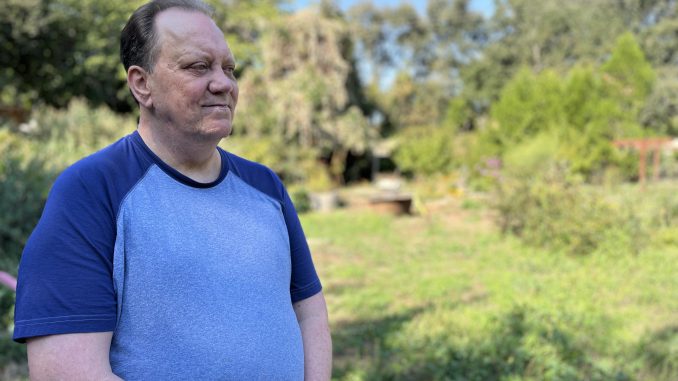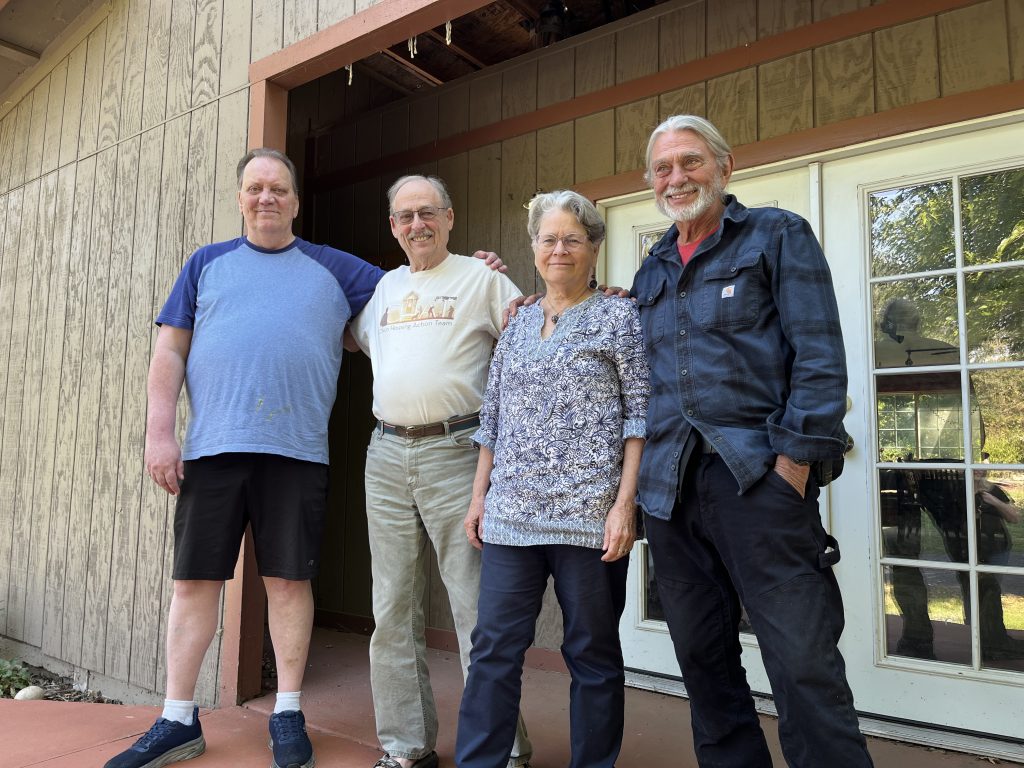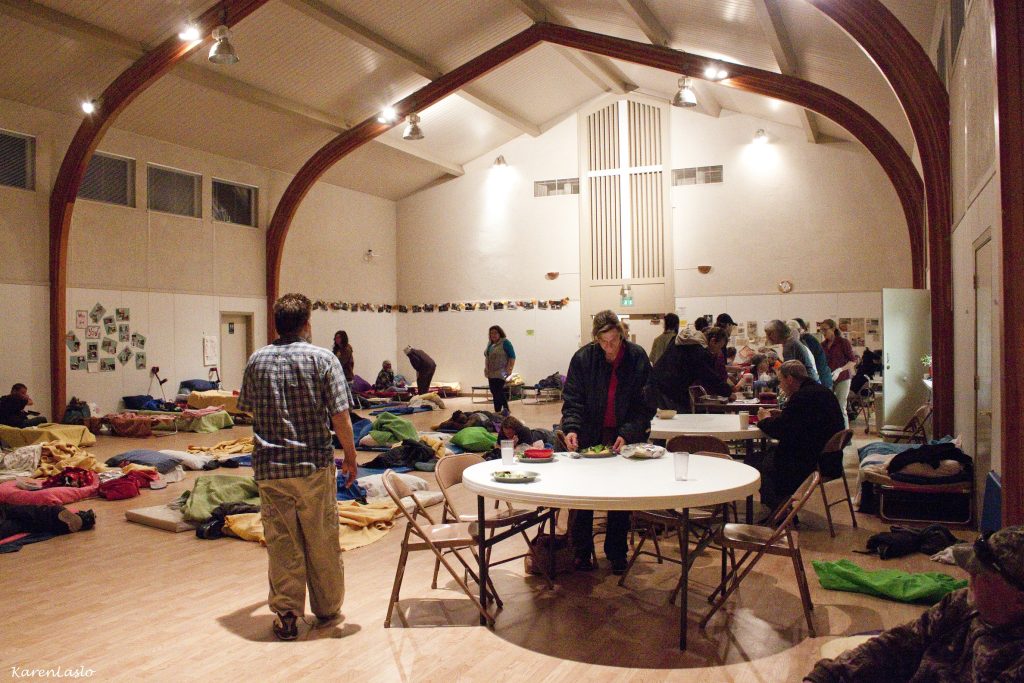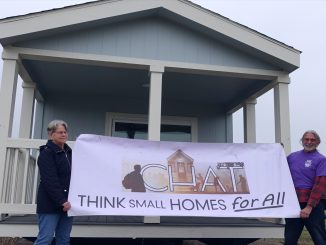
Kerry Chancholo is grateful for his job, his sobriety, a safe place to call home and—most of all, he professes—people he can trust. While most people might take these things for granted, they were basic human needs that eluded him for most of his 64 years.
“I had a childhood that Stephen King couldn’t have thought up,” Chancholo shared recently, his deep voice touched by even deeper emotion. “Sexual abuse, physical abuse, neglect … everything bad you could do to a kid happened to me. My early years were one long adverse childhood experience.”
That early trauma led Chancholo to become a full-blown alcoholic by the age of 13. As an adult he struggled to keep a job and moved from town-to-town, living on the streets. In 2005, he was panhandling (“to get enough money to buy my next drink”) when he was assaulted and almost killed.
After spending 21 days in a coma and months of recovery, he said his first stop after leaving the hospital was the liquor store. Though he eventually kicked alcohol and has been sober for 17 years now, other challenges including bouts with homelessness, depression and family tragedies continued to plague him.
He eventually landed in Chico, and was introduced to the Chico Housing Action Team (CHAT) while staying at the Torres Community Shelter. Though he’d utilized other programs in the attempt to help better his situation before, he said CHAT—which is celebrating its tenth anniversary this month—succeeded where others failed. CHAT gave him a place to live and the structure and support necessary to get a job.

“I could never have done this before, and the reason is because of trust,” Chancholo said. “They don’t just give people a safe place to rest, they care about the whole person. They care about my problems. They care about me.”
Diving into action
CHAT currently provides 85 homes—including houses, apartments, tiny houses and trailers—for 186 people. The organization owns 31 of these units (and hopes to purchase more), and operates the rest through a system known as “master leasing,” in which they acquire and manage multi-bedroom homes and other residences that would be unavailable to unhoused individuals on their own.
The year 2013 was a flashpoint in the battle over and against homelessness, in Chico and other cities. The local unhoused population was beginning to boom and the community was growing more divided on how to address the increasingly visible issue. Some factions pursued heavy-handed tactics—the Chico City Council passed its notorious “sit and lie” ordinance, the first of several local laws criminalizing homelessness, and a coalition of downtown businesses hired armed security guards to keep the unhoused out of the sight of downtown holiday shoppers.
Others sought more compassionate solutions. CHAT was one of the latter, as three founding members of the group—Bob Trausch, Leslie Johnson and Sheldon Praiser—explained in a recent interview. It was started that fall, when a number of concerned citizens and activists—many affiliated with the Chico Peace and Justice Center (CPJC)—began meeting regularly to discuss possible solutions, with one of the earliest focuses falling on tiny house villages. But within weeks, prompted by dire need, the focus changed from discussion to action.
“One of the persons started saying, ‘Have you folks heard the weather report?’” Praiser said. “‘Starting tonight, temperatures will be below 20 degrees. There’s a cold front coming in and people on the streets are going to die.’”
Praiser said another CHAT founder—the late Dan Everhart—was serving as chair of the CPJC’s board of directors at the time, and used his clout to open the center’s doors that same day for the very first night of the Safe Space Winter Shelter (SSWS).

“It was an immediate reaction to a problem and that kind of became our mantra: If we see a problem, let’s find a solution,” Praiser said.
SSWS became an independent entity in 2018, but the CHAT founders said they learned a lot from operating the shelter that continues to influence how and why CHAT operates. For one, Praiser said, they learned that most unhoused people are not penniless, but that many have income from Social Security, pensions, disability or other sources—though not enough resources to live on their own. This realization led to the group’s master leasing model, with the first CHAT house opening in 2015.
Another assumption shattered by operating Safe Space, they said, was that that homelessness mostly affected single men, but they soon saw demographics spanning society—women, elderly people, families, students, children, people with mental health and addiction issues, LGBTQ individuals, and more—also suffered. This has led to the development of more specialized CHAT programs, like the family-focused Hands Up Supportive Housing (HUSH); Redwood Housing, which is dedicated to homeless or at-risk college students; and the Camp Fire Housing Action Program, formed to help benefit victims of that 2018 disaster. CHAT also provides food assistance to residents and a variety of other help through it’s various programs.
For several years CHAT remained completely volunteer-run and donation-funded. Today, it has roughly 30 paid staff and pursues grant funding for select programs, but remains reliant on community support. Their evolution from under-the-radar housing activists to a known, effective community advocacy and action group has been notable. CHAT has even earned the public respect of one city leader not known for his faith in helper organizations, Chico City Councilman Sean Morgan, who once proclaimed from the dais that, “If anyone can do it, CHAT can.”
“We write it down! We put it on a T-Shirt!” Johnson said.
And despite its growth, the group remains focused on compassion in its mission of housing those in need.
“A lot of the people we serve have had these lives that in some cases, through no fault of their own, break them,” Trausch said. “The way that real healing really starts is in that trust, like Kerry said. We let them know we’re here, and we’re not going away.”
CHAT’s 10 Year Anniversary formal dinner/fundraiser
Nov. 4, 5-10 p.m.
Lakeside Pavilion, 2565 California Park Drive
$100 tickets available at chicohousingactionteam.com




Be the first to comment